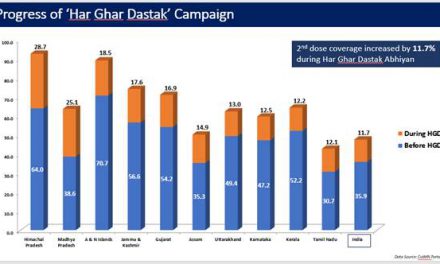Vancouver, BC – In the aftermath of the pandemic, there’s a resounding call to revive the village mindset to bolster the mental health of teenagers and instill a profound sense of community belonging, asserts a Simon Fraser University researcher.
Professor Hasina Samji from the Faculty of Health Sciences spearheaded a recent study delving into modifiable community and societal factors affecting youth mental health and overall well-being.
The investigation, stemming from Samji’s 2022 Youth Development Instrument survey encompassing over 8,800 Grade 11 students across British Columbia, sought to gauge the impact of positive and adverse childhood experiences on mental health outcomes. Data collection unfolded amidst the pandemic’s turbulent fifth wave, marked by staggering daily COVID-19 case counts.
Students candidly detailed their spectrum of life encounters, ranging from uplifting moments to daunting adversities experienced up to age 18. They also self-reported their levels of depression, anxiety symptoms, and overall mental well-being and life satisfaction.
Samji underscores the pivotal role of positive childhood experiences in mitigating depression and anxiety levels while enhancing life satisfaction and mental health. Conversely, a higher incidence of adverse childhood experiences correlated with heightened symptoms of depression and anxiety, alongside diminished life satisfaction and mental well-being.
Samji elucidates, “We can’t shield all young people from adversity. However, we’ve observed that adverse experiences can precipitate a slew of negative health outcomes across various domains.” Adults who weathered four or more adverse childhood experiences are significantly more susceptible to depression, low life satisfaction, anxiety, and even suicidal ideation compared to their counterparts with fewer or no adverse experiences.
The study underscores that fostering positive childhood experiences, such as supportive friendships, familial solidarity during trying times, a sense of community belonging, and reliable adult guardianship, can substantially fortify mental health resilience even in the face of adversity.
Adverse childhood experiences encompass a gamut of traumatic encounters including abuse (verbal, physical, sexual), neglect (emotional, physical), exposure to domestic violence, caregiver mental illness, substance abuse, and familial upheavals like separation or divorce.
Samji emphasizes a proactive approach, advocating for early intervention and systemic reforms to buoy families and institutions in nurturing positive childhood experiences while mitigating adverse ones. She urges a shift from a reactive healthcare model towards one that prioritizes preventive measures and structural supports.
“Mental health isn’t solely about illness; it encompasses holistic well-being. Just as we tend to our physical health through exercise and nutrition, we must similarly invest in mental health promotion and resilience-building,” Samji asserts.
The study underscores the imperative of addressing social determinants of mental health alongside extending support to individuals grappling with mental health challenges. Samji’s ongoing Youth Development Instrument survey, now spanning 32 school districts in British Columbia, underscores the growing recognition and urgency to prioritize youth mental health and well-being.
As communities navigate the post-pandemic landscape, the rallying cry to “bring back the village” echoes loudly, underscoring the collective responsibility to nurture environments conducive to youth flourishing and mental health resilience.











